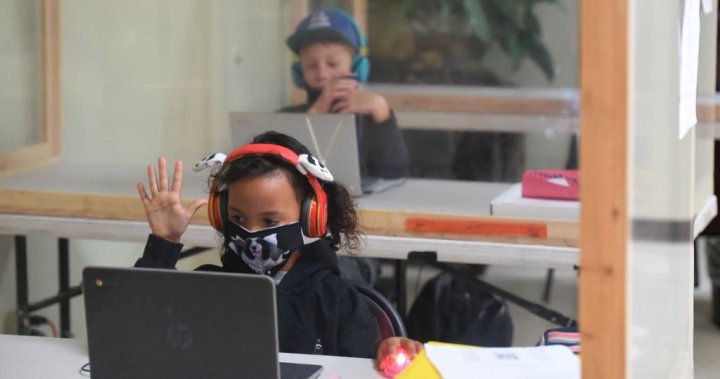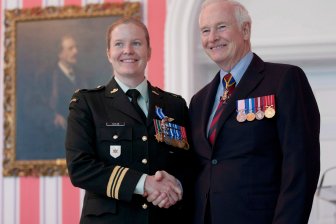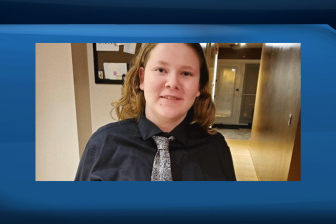[ad_1]
While the future remains uncertain amid the continuing coronavirus pandemic, there have been ongoing discussions on what the future of education for elementary and high school students could look like.
From learning models to reengaging with other groups of kids, parenting expert Alyson Schafer says the social aspect of high school culture was removed for many students, allowing for more to thrive at home.
“A child who has attention deficit disorder [could say], ‘Wow, my marks really went up with the pandemic because I can really focus with online learning,’” she says, adding the stress relating to bullying or peer pressure has also dropped.
When it comes to high school students, education expert Lauren Barr says the pandemic has allowed educators to pause, reflect and develop new tools and strategies.
Barr says having conversations about what a good education looks like, ensuring there is flexibility and adaptability in classrooms, as well as checking in with students has been successful.

From introducing a variety of different learning styles for curriculum to making accommodations for students, Schafer says there has been an ongoing effort to have education that best suits the needs of the kids.
To keep kids engaged and to take their learning to the next level, Schafer says continuing to customize education plans and curriculum is important.
Read more:
As pandemic highlights education inequity, Calgary teen raises money for technology for all students
“It’s about engagement, it’s about equity, it’s about offering different choices both to students and educators,” says Barr.
“I think we need to really sit down and evaluate what we want as a society for our education system, and we need to make sure we’re actually doing it, and we want to work together.”
Barr adds getting insight from students, teachers and other community members to work collaboratively can lead to figuring out past problems and aiming towards future goals.
For kids who have adjusted to learning from home and feel anxious about returning to in-person schooling full time, Schafer advises parents to find the root cause.
“Find out what exactly is the source of anxiety, because how you address it is going to be different if it’s a social anxiety or if it’s actually anxiousness from contracting the virus … [or] fear of speaking out loud and reading in front of your classmates,” she says.

When it comes to anxiety, parents’ attitudes also matter, she says and they can work on some problem solving to help their child feel prepared to make it through an anxious situation if it arises.
“If we’re fearful or pity our child then they’re more likely to pick up on that, so we have to have that, ‘You can do it, you’ll manage’ [attitude] and help them develop some coping strategies.”
Watch Schafer and Barr’s full interview with ‘The Morning Show’ in the video above.
© 2021 Global News, a division of Corus Entertainment Inc.
[ad_2]


